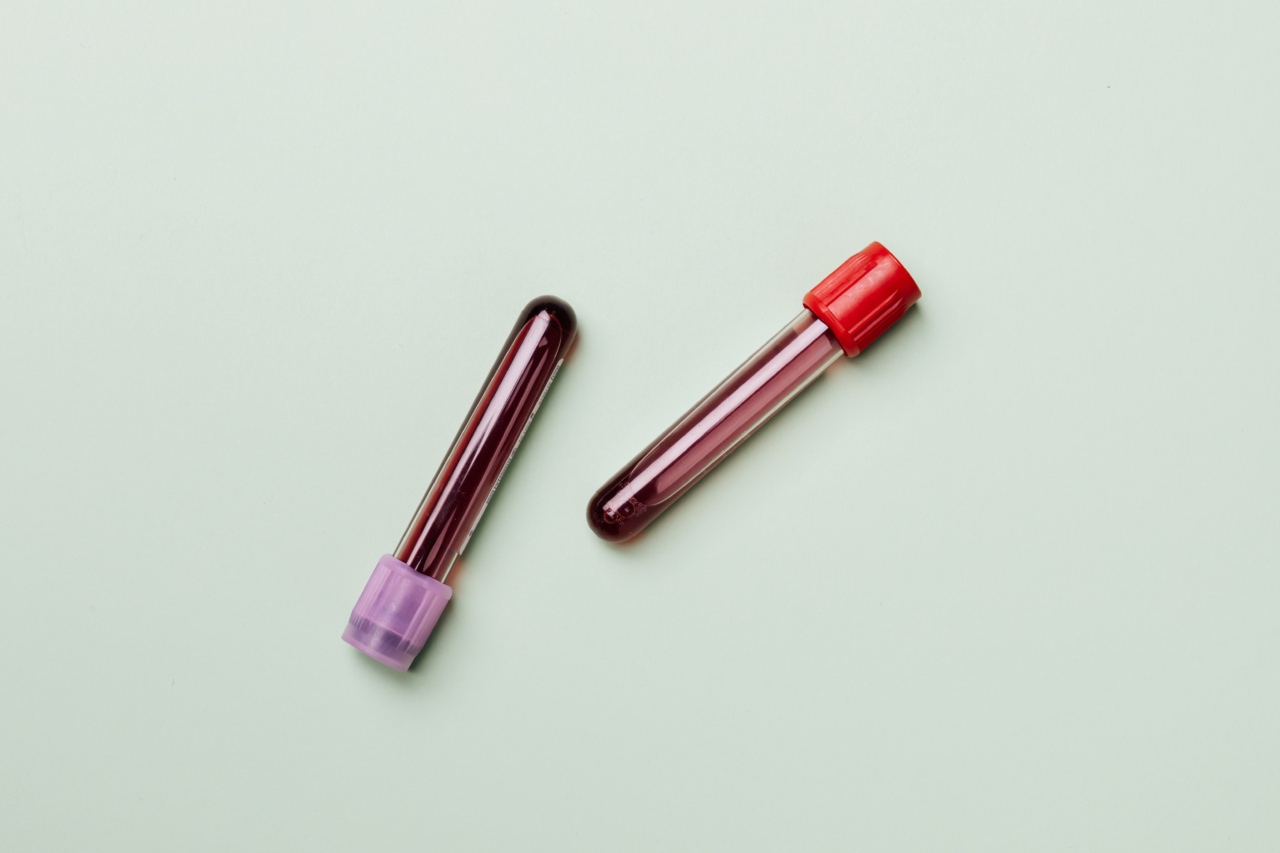Rheumatoid arthritis (RA) is a chronic autoimmune disorder that primarily affects the joints. It is characterized by inflammation of the synovium, the tissue lining the joints. RA can lead to joint deformity, severe pain, and disability if left untreated.
Early detection is crucial for effective management and to prevent long-term damage to the joints.
Symptoms of Rheumatoid Arthritis
The symptoms of rheumatoid arthritis can vary from person to person, but common signs include:.
- Joint pain and stiffness, especially in the morning
- Swelling and tenderness in the joints
- Fatigue and overall weakness
- Loss of appetite
- Fever
- Weight loss
Diagnosing Rheumatoid Arthritis
Diagnosing rheumatoid arthritis typically involves a combination of physical examination, medical history review, and laboratory tests.
Blood tests are an essential component of the diagnostic process as they can provide valuable information about the presence of autoimmune markers and inflammation in the body.
Rheumatoid Factor (RF) Test
The Rheumatoid Factor (RF) test helps in detecting the presence of RF antibodies in the blood. RF antibodies are produced by the immune system in response to an autoimmune attack on the synovium.
However, it is important to note that RF antibodies are not exclusive to rheumatoid arthritis and can also be found in other chronic conditions, such as systemic lupus erythematosus and Sjögren’s syndrome.
Anti-Cyclic Citrullinated Peptide (anti-CCP) Test
The anti-CCP test is another blood test used to diagnose rheumatoid arthritis. It detects the presence of anti-CCP antibodies, which are highly specific to RA.
The test has a higher specificity for rheumatoid arthritis compared to the RF test, meaning that a positive result is more likely to indicate the presence of RA. It is particularly useful in early diagnosis and can help identify individuals who are at a higher risk of developing severe joint damage.
Erythrocyte Sedimentation Rate (ESR) Test
The Erythrocyte Sedimentation Rate (ESR) test measures the rate at which red blood cells settle at the bottom of a test tube over time. This test indirectly reflects the presence of inflammation in the body.
Elevated ESR levels can indicate the presence of inflammatory conditions, including rheumatoid arthritis, but it is not exclusive to RA and can be influenced by other factors, such as infection and pregnancy.
C-Reactive Protein (CRP) Test
The C-Reactive Protein (CRP) test measures the levels of CRP, a protein produced by the liver in response to inflammation. Like the ESR test, elevated CRP levels indicate the presence of inflammation.
Although the CRP test is not specific to rheumatoid arthritis, it can help monitor disease activity and response to treatment.
Complete Blood Count (CBC) Test
A complete blood count (CBC) test provides valuable information about various components of the blood, including red blood cells, white blood cells, and platelets.
While there is no specific marker for rheumatoid arthritis in a CBC test, it can help identify signs of anemia, which is common in individuals with RA due to chronic inflammation.
Joint Imaging
In addition to blood tests, joint imaging techniques such as X-rays, ultrasound, and magnetic resonance imaging (MRI) may be used to detect joint damage and assess disease progression.
These imaging tests can provide detailed images of the joints and help evaluate the extent of inflammation, joint erosion, and deformity.
When to Consult a Doctor?
If you experience persistent joint pain, swelling, and stiffness, it is advisable to consult a doctor, especially if the symptoms last for more than six weeks.
Early diagnosis and treatment are crucial in managing rheumatoid arthritis effectively and preventing long-term joint damage.
Treatment Options for Rheumatoid Arthritis
Rheumatoid arthritis is a chronic condition that requires lifelong management. Treatment options include:.
- Medications: Nonsteroidal anti-inflammatory drugs (NSAIDs), disease-modifying antirheumatic drugs (DMARDs), and biologic response modifiers (biologics) can help alleviate symptoms and slow down the progression of the disease.
- Physical Therapy: Exercises, stretches, and physical therapy sessions can improve joint flexibility, strength, and function.
- Lifestyle Modifications: Adapting to a healthy lifestyle, avoiding excessive joint stress, and maintaining a balanced diet can help manage symptoms and improve overall well-being.
- Surgery: In severe cases, joint replacement surgery or joint repair procedures may be recommended to restore joint function and relieve pain.
Conclusion
Early detection of rheumatoid arthritis through blood tests is crucial in ensuring timely treatment and preventing joint damage.
The Rheumatoid Factor (RF) test, anti-Cyclic Citrullinated Peptide (anti-CCP) test, Erythrocyte Sedimentation Rate (ESR) test, C-Reactive Protein (CRP) test, and Complete Blood Count (CBC) test are commonly used to aid in the diagnosis of RA. However, it is important to consult a healthcare professional for proper evaluation and accurate diagnosis.




























